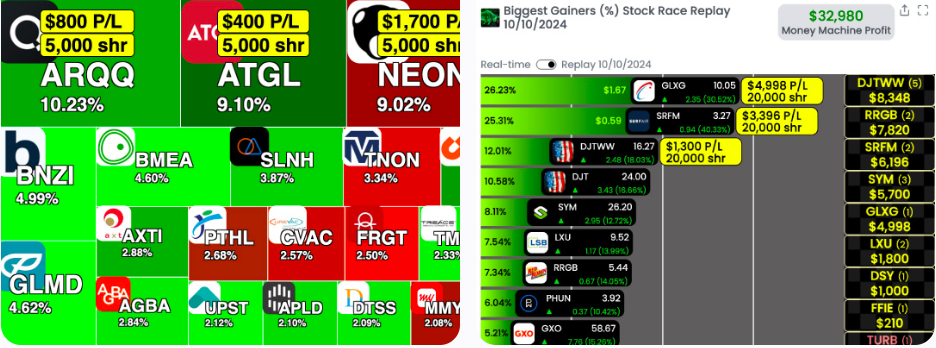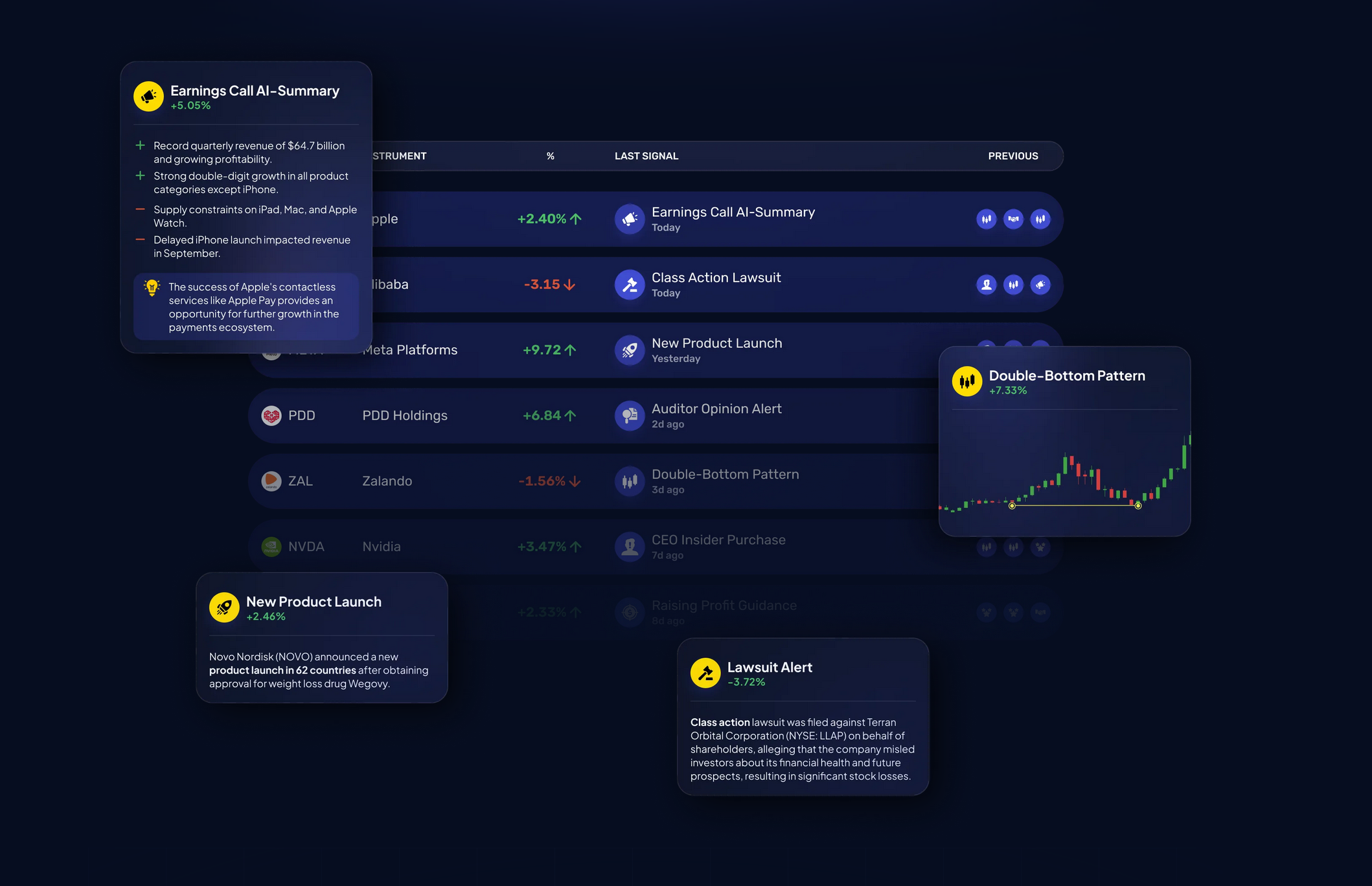20 Free Ideas For Choosing AI Stock Investing Platforms
Top 10 Tips For Evaluating The Privacy And Security Of Ai Analysis And Stock Prediction PlatformsSecurity and privacy of trading platforms built on AI are vital, considering that they handle personal and financial data. In the event of a data breach or misuse, it could cause reputational and financial damage. Here are 10 tips to assess the privacy and security features of these platforms.
1. Take into consideration encryption of data
Encryption while in transit Check that the platform is using SSL or other secure protocols (e.g. SSL/TLS) to secure information that is transferred between your devices and their servers.
Encryption of sensitive data at rest: Check the encryption of sensitive data on the platform's server using high-quality encryption standards (e.g. AES-256).
End-to-end encrypted communications: Make sure that the platform you're using offers encryption that is complete for sensitive data.
2. Examine the Authentication Mechanisms
Two-factor authentication (also known as copyright) is an excellent method to improve security.
Check for biometric authentication.
Password policy: Examine to determine if your service has strict policies on passwords.
3. Check for Compliance
Financial regulations: Ensure compliance with the relevant financial regulations (e.g. SEC FINRA MiFID II).
Data protection laws: Check for the compliance of your data privacy laws (e.g., GDPR, CCPA) if you are operating in or trading with areas which are covered by these laws.
Audit certifications. Check that the platform you're looking at has passed an independent assessment of security or certifications.
Review Controls for Access to Data
Role-based access: Ensure the platform is using role-based access controls (RBAC) to limit access to data to only authorized users.
Verify that you have the ability to create permissions with granular levels for various team members.
Activity monitoring. Check whether your platform keeps track of and monitors user's activity.
5. Evaluate Vulnerability Management
Regular updates: Ensure that your platform is always updating its software to address weaknesses.
Penetration Testing: Verify whether the platform is routinely subjected to penetration tests, which identifies and fixes security vulnerabilities.
Programs for bug bounty: Check whether there is a bug bounty program on the platform to encourage security researchers from outside to share security vulnerabilities.
6. Evaluate Data Privacy Policies
Transparency - Review the privacy policies of the platform in order to understand the ways in which data is shared, collected, and utilized.
Data minimization is the process of ensuring that only data necessary for operation are gathered by the platform.
Third-party sharing: Determine whether the platform shares data with third parties and, if so, under what conditions.
7. Secure API usage should be checked
API security. Make sure APIs are secured authentication methods (e.g. OAuth keys, API keys), and that data is encrypted.
Rate-limiting: Determine if the API has a limit on rate to stop abuse and brute force attacks.
Access logs: See whether the platform is recording API access and usage to allow auditing and monitoring.
8. Assess the Recovery and Response to Incidents
Incident response plan: Ensure the platform has an incident response plan to handle security breaches or data breaches.
Check the platform's notification policies to see if it notifies users promptly in the event of a breach of security.
Backups of data - Make sure your platform is equipped with a plan in place for disaster recovery, and that it regularly backs data up.
9. Check out the security measures for physical security
Data center Security: Ensure that servers are located in secured data centers that have physical security measures (e.g. monitoring, access controls).
Redundancy: Ensure that there are redundant systems on the platform to ensure that data is available in case of hardware failure.
Examine the geographical distribution of data to ensure its resilience.
10. Test privacy controls for users
Data deletion: Make sure that the platform will allow you to permanently erase your personal information when you stop using the service.
Privacy settings: Make sure to check whether the platform has privacy settings to control the data that is shared or visible.
Anonymization: Check if the your data is encrypted to allow machine learning or analytics.
Bonus Tips
User feedback and reviews to evaluate the platform's security and privacy.
Trial period: You are able to avail a demo or a free trial period to test the privacy and security controls.
Support for customers: Ensure that the platform has a solid customer service for any security-related concerns or issues.
Use these guidelines to assess the security and privacy level of AI trading platforms that predict stocks. In this way your personal information and financial details are safe. A secure platform not just secures your assets, but also creates trust in their service. Have a look at the top read more here for AI stock for more examples including ai investment app, ai investment app, options ai, best ai trading app, AI stocks, ai trading, AI stocks, AI stock trading app, AI stock, trading ai and more.

Top 10 Tips To Assess The Regulatory Conformity Of AI stock Predicting/Analyzing Platforms
When evaluating AI trading platforms, regulatory compliance is crucial. Compliance assures that a platform complies to financial regulations, and adheres to legal frameworks and safeguarding user information. This minimizes the chance of financial penalties or legal issues. Here are the top 10 tips for evaluating the regulatory compliance of these platforms:
1. Check the Licensing and Registration
The regulatory bodies: Make sure the platform has been certified and registered with appropriate financial regulatory bodies (e.g. SEC in U.S.A., FCA UK, ASIC Australia).
Verify the broker collaboration If your platform is integrated with brokers and brokers, you need to make sure that these brokers are licensed and regulated.
Public records: Visit the regulatory body's website for the status of registration and any previous violations.
2. Review the privacy of your data Compliance
GDPR In the event that you are serving or operating within the EU ensure that your platform is in compliance with the General Data Protection Regulation.
CCPA - California Consumer Privacy Act: Verify compliance of California users.
Data handling policy: Ensure that you go through the platform's privacy policies to learn the way in which user data is collected and stored.
3. Examining anti-money laundering measures
AML policies: Ensure the platform is equipped with strong AML policies to stop and identify money laundering activities.
KYC procedures: Determine if the platform follows Know Your Customer (KYC) procedures to verify user identities.
Monitoring transactions: Find out if the platform monitors transactions for suspicious activities and if it reports it to the appropriate authorities.
4. Check for Compliance With Trading Regulations
Market manipulation: Ensure that the platform is equipped with measures to prevent market manipulations, like wash trading or spoofing.
Types of orders: Check if the platform complies with the regulations for order types (e.g. there is no unlawful stop-loss hunting).
Best execution: Examine to see if the platform adheres best execution practice, which ensures that trades are executed at the lowest possible price.
5. Cybersecurity Assessment
Data encryption: Make sure your platform is secure for data in the transfer process and in rest with encryption.
Incident response Incident response Verify the system's plans to take action in the event of cyberattacks or data breaches.
Certifications: Check if the platform has cybersecurity certifications (e.g., ISO 27001, SOC 2).
6. Transparency & Disclosure:
Fee disclosure. Make sure that all charges and fees are disclosed clearly, including any hidden or additional costs.
Risk disclosure: See if there are clear disclosures of risk, particularly for high-risk or leveraged trading strategies.
Performance reporting: Verify that the platform offers honest and precise reports regarding its AI models.
7. Make sure that you are in compliance with International Regulations
Cross-border Trading: If your trading involves international trade it is important to ensure that your platform is compliant with all requirements for regulatory compliance in every jurisdiction.
Tax reporting: Check whether a platform offers tools or reports to allow users to comply with tax regulations.
Sanctions compliance - Ensure that the platform adheres to international sanctions and does not allow trading only to nations or entities banned.
8. Examine the records-keeping and audit trail
Records of transactions: The platform should maintain detailed records on all transactions to be used for regulatory and auditor purposes.
Logs of user activity: Check whether the platform is logging users' activities, including logins, trades, and changes to the account settings.
Audit readiness: Make sure that the platform has the necessary documents and logs in the event an audit by a regulatory agency.
9. Verify compliance with AI-specific regulations.
Algorithmic trading regulations: If you are using a platform that supports algorithmic trading, make sure it is in compliance with relevant regulatory frameworks such as MiFID II or Reg SCI, in Europe and the U.S.
Fairness and Bias: Make sure that the platform monitors biases and minimizes them in its AI models in order to ensure fair trading.
Explainability - Make sure that the system is able to clearly and concisely explain regarding AI-driven decisions, predictions, etc. in accordance with certain regulations.
Review the User Feedback and the Regulatory Histories
Reviews from users: Perform research to evaluate the credibility of the platform for legal compliance.
Regulatory History: Look for past violations of the regulations and penalties, fines or sanctions.
Third-party audits: Verify that the platform has regular third-party audits to ensure compliance with regulations.
Bonus Tips
Legal consultations: You may want to consult an attorney to determine if the platform is in compliance with applicable regulations.
Trial period. Use the free trial or demo version of the platform to test its features for compliance.
Support for customers: Ensure that the platform provides support to answer questions or concerns with respect to compliance.
Use these guidelines to assess the compliance with regulations and protect of your interests. Compliance not only lowers legal risks but also builds confidence and trust in the services of the platform. View the best more about best stock prediction website for website recommendations including AI stock prediction, best ai trading platform, ai options, investing with ai, stocks ai, best AI stocks to buy now, best AI stocks to buy now, ai investment tools, ai share trading, stock predictor and more.
